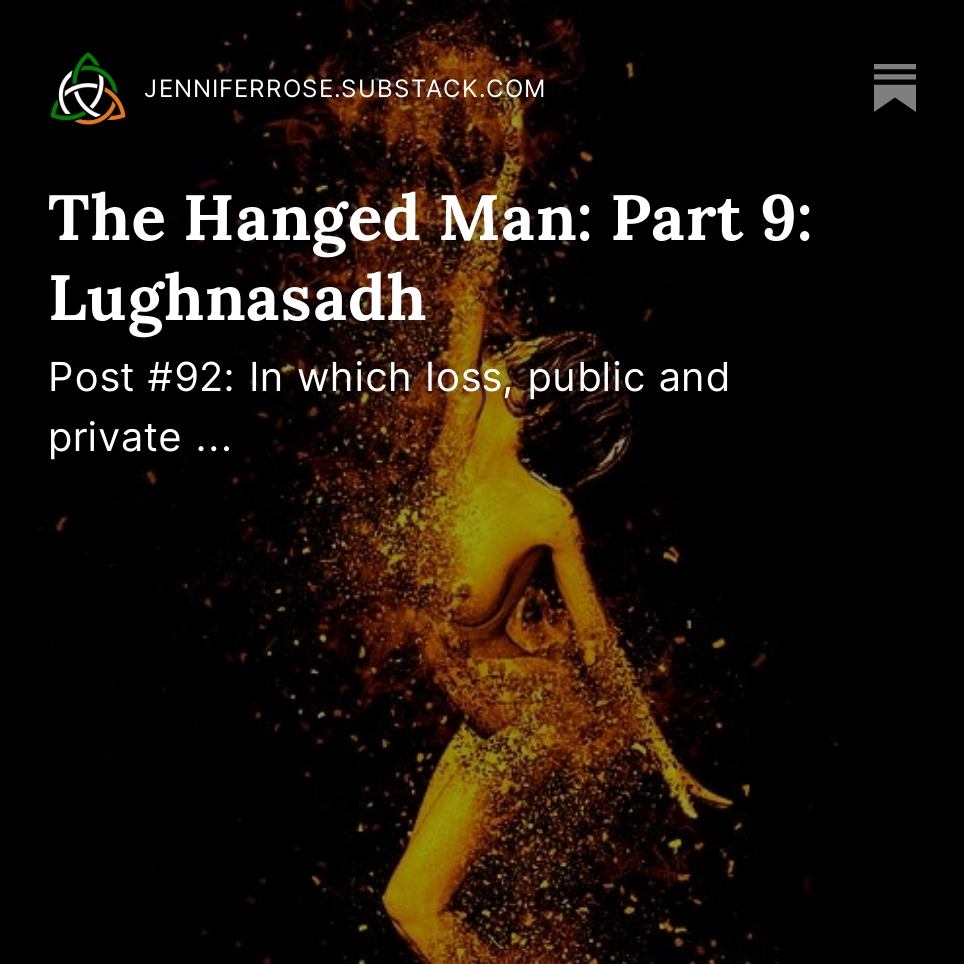by Jenny Rose | Apr 13, 2024 | Connection & Community, Emotional Intelligence, Shadows
I have felt, for a period of some years and more frequently since 2016, that the planet would be better off without human beings. I’ve said it, I’ve thought it, and this is the first time I’ve written it. I would be happy to be the first in line, gladly give up my life in the certain knowledge that without us, Earth could heal, cleanse itself, and nurture all the countless species we have failed to notice, value, and cherish. Let the rape stop. Let the wide-scale poisoning stop. Let the brutality, suffering, stupidity, greed, and criminal disregard for others stop.

Photo by NASA on Unsplash
I freely admit to the pessimism and bitterness inherent in my view. I’m also aware of how paradoxical it is. I truly care about most people. Put a single human soul in my path, and I rarely fail to make a connection and feel some kind of empathy and kindness for them. I’ve spent my life caregiving, supporting, and teaching people, taking great joy in my contribution.
In my last few posts, starting with “The Locked Room,” I’ve thought a great deal about self-love and self-trust. It occurs to me my despair over human behavior as a whole must include me. My willingness to see us all wiped out includes a willingness to be wiped out myself. If other humans are capable of the atrocities happening all around us every day, so am I. If I want to see that dark potential destroyed, if I’d be glad of it, even, my self-love is seriously incomplete.
I’m not sure I’d call it self-hate. I don’t hate myself, you, the stranger on the street, or friends and family, but I hate what we are capable of. I hate what we can (and in some cases choose to) do. I believe some of us are willing to heal, grow, change, unite, and make better choices, but right now most of the human power in the world (as we understand power) lies in the hands of a few louts nobody seems to be able to overcome. Indeed, many cheer them on.
And that could be any of us, cheering them on. In the right context, with the right ideology, it could be any of us. I am too old to tell myself fairy stories about how I would never fill-in-the-blank. Easy to say as I listen to my sheets rotating in the washing machine, drink clean water from my tap, notice the old copper pipes rattling as the furnace comes on, and type on my laptop in my fully electrified, clean, intact house in a peaceful neighborhood on a Saturday morning with my feet propped up on my desk. I am sane. I am healthy. I am well-fed, housed, and employed. Most people do not have the luxuries I take for granted, the safety, the peace. People do terrible things out of terrible pain and dysfunction. I am not immune. None of us are. I’ve been fortunate, and that’s through nothing but luck.
A few weeks ago I read a piece by an author on Substack, Anna Kay, who writes a newsletter called The Hinterlands. I stumbled across her “A World Without a Heartbeat” by chance. She was not a writer I was familiar with, though I have since subscribed to her. She turned me inside out. I wept. I was comforted. I was awed and envious of her evident belief in human goodness. I was softened. I was challenged.
Most of all, I was challenged. As I read her words, I glimpsed a different frame, a frame of hope rather than bitterness.
I could not possibly paraphrase her words and I wouldn’t dare try to give you a synopsis. It’s not a long piece, and if you only follow one link out of the hundreds I’ve posted here in the last eight years, let this be the one. Please.

By Photoholgic on Unsplash
What moved me most was a world without humans would be a world without stories. A world without stories, a world without music, a world without art. A world without reverence and gratitude for nature. A world without human appreciation. Somehow, that seems like a terrible loss. I’m not sure why. Wouldn’t the planet be every bit as rich and beautiful if no one enjoyed it? Surely it would. Yet the loneliness of feeling unseen and unappreciated hurts because I’ve lived in the heart of that feeling.
The question I ask myself is am I willing to allow some or all of my bitterness to dissolve in order to deepen my ability to self-love? Bitterness is a heavy burden and there’s plenty in the world. Do I need or want to add to it? Is it useful?
It’s true we humans are capable of terrible things. Isn’t it also true we’re capable of remarkable courage, generosity, intelligence, creativity, and love?
Couldn’t we each make a list of human teachers, guides, beloved ones who have inspired us, protected us, and made us smile as well as a list of those who have done us wrong?
Our choice is which list to make, which to dwell on.
I’ve become deeply involved with the Substack community. I follow several other creatives simply because they inspire me. They make me feel better about the world, about life, about myself. They balance some of my despair and horror regarding the state of the world with beauty and hope. I’d like to introduce you to some of them:
Questions:
- Do you believe humans have value as a species? Why or why not?
- What human-driven activity gives you hope?
- Do you see humans as part of a healthy planet or an invasive species, wiping out all competitors?
Leave a comment below!
To read my fiction, serially published free every week, go here: 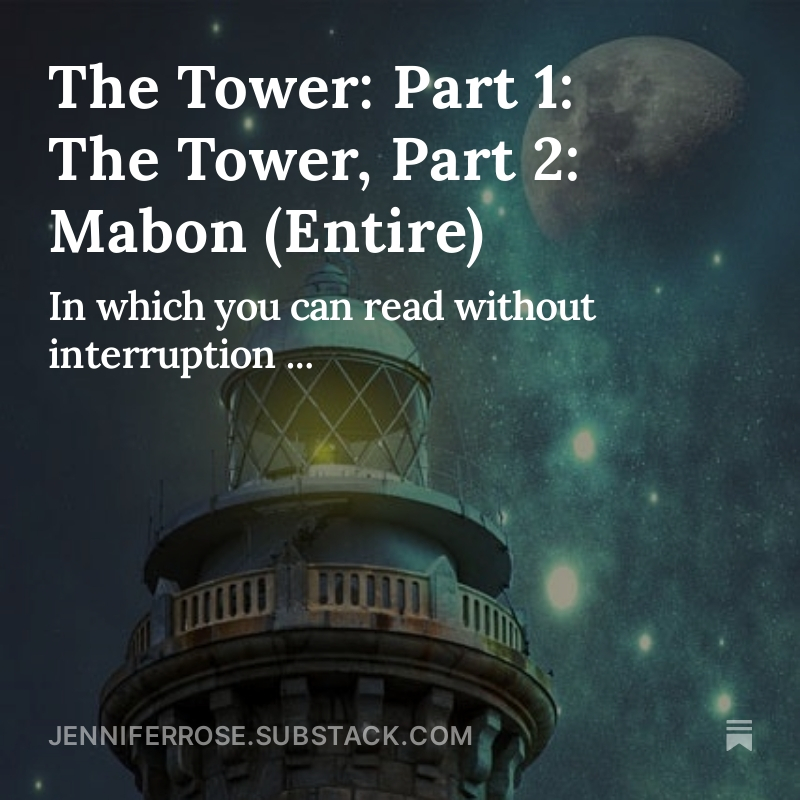
by Jenny Rose | Feb 17, 2024 | Authenticity, Emotional Intelligence
Years ago I came across a tip somewhere for getting to know new people in a meaningful (versus social media, digitally-altered images, and dating apps) manner with good questions, one of which is “What would your ideal vacation look like?”
At the time I thought it a great question and I still do. I tried it once without success. Not only was I not asked in return, I received a kind of non-answer along the lines of “I don’t take vacations …” (I wondered why, but it felt intrusive to ask) which didn’t help me get to know the party in question any better! Connection dead on arrival, the story of my life. I retired, abashed.

Photo by Quino Al on Unsplash
Ever since then, I’ve thought about my answer to the question nobody has ever asked me!
I’m thinking about it again because I just picked up Drinking the Rain by Alix Kates Shulman for the first time. It’s a memoir about a woman, about my age, who spends a summer alone in a primitive cabin on an island off the coast of Maine. Primitive means no telephone, no running water, no electricity. She has no transportation aside from her own legs. She finds the experience so satisfying and remarkable she begins to spend all her summers there, for the most part alone.
It also happens to be school vacation week here in Maine, and I hear lots of talk at the pool where I work about planned trips right now. A good friend is taking the week off with her daughter and partner to go to Florida.
Online Oxford Dictionary defines a vacation as “an extended period of leisure and recreation, especially one spent away from home or in traveling.”
Hmmm.
I looked it up because all my life I’ve heard people use the word ‘vacation’ to describe trips and adventures that sounded exhausting and stressful rather than like ‘leisure and recreation’. Of course, it’s not a one-size-fits-all definition. That’s why it’s such a great getting-to-know-you question.
I cannot remember a single vacation I’ve taken with others as a child or adult that wasn’t fraught with tension and stress, and from which I didn’t return far more exhausted and burned out than when I left home.
When people talk about vacations, I shudder.
But once I had a perfect vacation. An incredible period of leisure and recreation away from home. I’ll never forget it.
I was a struggling mother of two school-age sons in an abusive marriage, living in a small town about three hours’ drive from my sons’ father, who was too busy and important to drive to us. For the sake of my boys I therefore drove to their dad twice a month for years and years. A six-hour round trip. This effectively took care of two full weekends a month. I had chronic pain and was always exhausted. My husband had isolated me socially and controlled our finances. My mother and adoptive father had just moved to the small rural town where we lived so I was once again caring for her and my significantly older adoptive father. As Mom was also abusive, I had no respite childcare. I did not trust my husband and tried to keep the kids away from him. I solved the childcare problem by working at their little school, so we had the same schedule.

Photo by Hailey Kean on Unsplash
A friend of mine had a family cabin in the mountains west of town and she offered it to me one summer. I carefully planned for a period of time when the boys would be with their dad, and I went.
The cabin was in an isolated community, mostly of summer places. Here in Maine, it would have been called a “camp.” It had been built on a hill amidst pine trees. No road or other building was in sight. It had running water, but no electricity and no phone. These were the days before cell phones. My friend’s family used oil lamps and candles for light. The hot water heater ran on gas; I had to light the pilot light. The cabin consisted of one large room and a bathroom, with four twin beds in the main room, a fireplace, and a simple open-concept kitchen. The small fridge was also gas, as well as a rudimentary stove. Outside was a large outdoor fireplace and seating area.
I packed a couple of books, a journal, some food and minimal clothes. Nobody but my friend knew the exact location. I was alone.
I was alone! No one could interrupt me. No one could make a demand, tell me I was doing it wrong, hurt me. No one could telephone. No one could have a crisis that only I could solve. I did not have to be responsible for anyone but myself. The relief was indescribable.
It was a beautiful Colorado mountain summer. No bugs, clean air, cool nights, dry weather, abundant sun. I lit pilot lights, unpacked, put a chair in the sun, and undressed.
Yes. I undressed. I wanted to soak up every bit of sun and privacy I possibly could. I got myself a cold drink and went outside with my book, naked as the day I was born. I read for a while. I was reading Elizabeth George at the time, the author of a magnificent mystery series, each book big and fat and long.
I got sleepy in the sun and realized I could take a nap!
I went inside, chose a bed, opened it, cuddled down, and slept for almost two hours. When I got up I was hungry, so I ate. Then I went back out, moved my chair into the afternoon sun, and read some more. When the sun went down I put on clothes for warmth, lit candles, ate again.
It went like that for three blissful days. I took a shower once, and brushed my teeth when I thought of it. I ate and drank when I wanted to. I paid no attention to the time. My hours were bounded by the sun’s movement across the deck. I slept naked and spent the days naked, dressing only in the cool early mornings and evenings. I wrote and read and slept around four hours a day. When it got dark, I slept again. I had never slept like that before and I haven’t since. There seemed no end to my exhaustion and my relief at knowing I was somewhere they couldn’t find me. Nobody needed me. I didn’t have to respond. I was safe. I knew my friend would never tell my husband where I was. The kids were with their dad. It was the first time I’d ever been inaccessible to everyone.

Photo by Cristian Newman on Unsplash
No amount of money could have given me such a respite. No exotic destination could have suited me better than the utter privacy of that old cabin in the pine trees. I have never again experienced that kind of freedom to do nothing, be nothing, and know I would not be interrupted. For me, the word ‘vacation’ will always mean those three days.
I suppose some people would find this pitiable. The thought makes me smile, as it was one of the peak experiences of my life. And that’s my point; that’s why imagining (or remembering) an ideal vacation is so interesting to share with others. Such an exercise points to our longing, and what we wish to escape. I know people who love to travel and go on adventures, enjoy getting away with friends or family. I listen to their plans and stories and marvel at how different we all are, how unique our ideas of fun and what we choose to do with our leisure.
I know other people who are perfectly content at home, who have no desire to get away at all. That’s not me. I love my home, but I’d go somewhere like that cabin in a flash. I’m not so exhausted now, but I’d welcome the same feeling of being out of touch, unavailable, free of the necessity of emotional labor, not because I don’t love my friends, my job, my cats, but because I also love my solitude and one can’t do things like sit naked in the sun and read all day in company! I couldn’t, anyway. I’ve never been able to be all of what I am unless I’m alone.
Questions:
- What would your ideal vacation look like?
- What’s the best vacation you’ve ever had?
- Do you return from vacations rested and renewed or exhausted?
Leave a comment below!
To read my fiction, serially published free every week, go here: 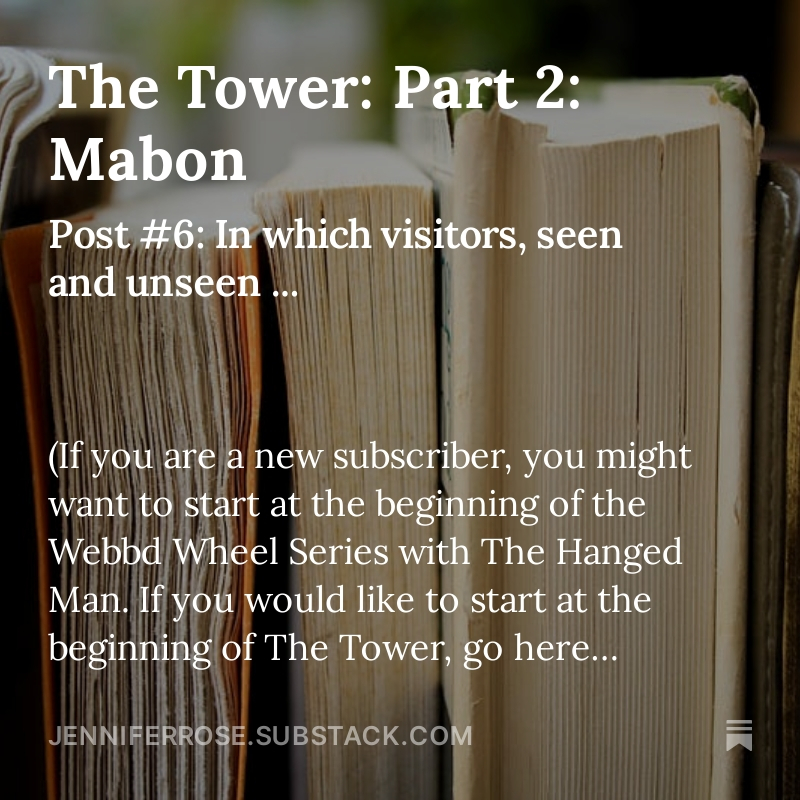
by Jenny Rose | Feb 3, 2024 | Connection & Community, Emotional Intelligence
For me, February 1st is the first day of spring. I know it’s early. I like it that way. I like the anticipation, the half-intuited first stirring of life under the soil, under last year’s debris, the slow, cold wakening of seeds, stiff in their dormant shells but quickening, murmuring, “Is now the time …?”
The birds are the first harbingers for me. Here, in this place, a small city in central Maine, it’s the crows, the jays, the cardinals, and the little tufted titmice. The crows and jays complain in harsh voices of salt-encrusted pavement, tired snow over lumpy ice, the steely cold. Cardinal pairs flit in my bare, bedraggled forsythia, and visit the feeders, a startling splash of color in the grey and bone landscape.
The titmice sing. Joyful, bursting little songs of nests and eggs, of green growth and warming light. The first spears of bulbs, the budding lilac, the luscious magnolia petals are in their song, though those things are only memories and hopes in the February garden.
(As I edit this, the first goldfinch outside the window.)
(On the morning of the day I publish this, at dawn, the chickadee’s two-note spring call.)

Photo by Ales Krivec on Unsplash
I have been feeling quiet. I’m burning down the last two Yule candles, gradually bringing out those of white and ivory, scented with lavender and herbs. Midwinter festivities are packed away, red table linen and warm-colored throws washed and folded for another season. I’ve been spring cleaning, making glass shine, mopping the scarred old floor, washing cupboards and doors. I walk to and from work bundled up in wool and fleece, the cleats on the bottoms of my boots clicking on the bare pavement and keeping me anchored in the ice and snow. The cold makes my eyes water, my nose run, and my ears hurt. At night, after closing the pools at 6:00, I drop a fluorescent sash around my backpack and chest and hold a small flashlight in the hand closest to the traffic, a white LED light shining ahead, a red flashing light showing from behind.
At times sleep has been thin and wrinkled this winter. In other periods of ebbing sleep I’ve felt frantic and exhausted, but this time I don’t mind. The long cold nights are restful whether I sleep or not, lying comfortable and warm in my chilly room, cocooned in linen sheets and a down comforter. I think of stars overhead, the moon on her path, ebbing and flowing, the tides lapping against the stony coast not so very far away. The hot water pipes in the radiators pop and click reassuringly.
I remember ice skating as a child, gliding smoothly over frost and snow, soaring over magically transformed water, cold biting like the crystalline sound of the sharp-edged skate blades, but warm in body from the rhythmic thrust of my legs. I haven’t skated in more than 50 years, but I remember it now, the freedom, the rhythm, the pleasure, the sense of inconsequence, as though nothing mattered, all was easy and graceful and flowing.
As the old year and winter inch over thresholds into something new, I am companioned by memories. This time last year is a constant whisper in my mind, because this time last year my mother was dying. I am not preoccupied with any time before that. After a lifetime of striving to understand and repair family history and relationships, I have surrendered to what was and what is now over. My battered empathy lies tranquil, not ravaged and torn but manageable, docile, turning over the pieces of last year with gentle intention.
In the clarity of cold winter, in my internal peace, I am alive, aware, receptive in new ways. I learned much in the last year, but intellectually. There was not time for more. The intensity of the situation, the constant crises, the long distance management, the anguish, the helplessness, the impossible tasks, the planning, demanded everything I had. I did not have time to process, to think long and deeply. I did not have the strength for it.
But now, now the past year echoes within my bones and flesh and memory. The ghosts of my feelings and experiences are miraculously without anguish, without horror, whispering a half-remembered story from childhood in which everything works out in the end. 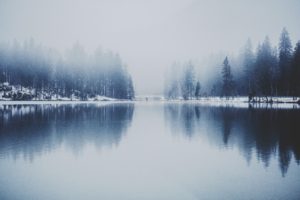
Mom herself does not haunt me. She wouldn’t come back to me in any case, but even before that thought has formed I realize she wouldn’t come back to any person. If she is in a place we can call somewhere, she’s with her animals. No one who knew her well or loved her could doubt it. She wouldn’t come back to anyone, not just me. I knew it before, but now I feel it, and the feeling is gliding, no friction, just freedom and clean, cold air. I can picture her face, laughing, joyful, with manes and tails, paws and shining coats, flopping tongues and pricked ears all around her. And I’m happy for her happiness.
A year ago I was home again after my first trip back to Colorado. I wrote on the ice, on the surface of things. I think without that I might not have stayed the course. It was my lifeline. I was surviving.
A year ago I noticed but did not feel the presence of the birds. The first weeks of Spring came and went; I was focused on the next trip to Colorado, on arranging an estate auction, on supporting my brother in finding renters for Mom’s home, on maintaining communication with Mom’s community, her caregivers, and family. I had no attention for anything but calls and texts as her condition and behavior worsened.
I was not here in April when the magnolia tree began to bloom. I did not kneel in the cold mud of the garden, rejoicing in the chilly sun as the bulbs first thrust up through the softening soil. We were dismantling Mom’s life in Colorado, reading the intimate stories of her history, her loneliness, her fear, and her private struggles. Revealing and releasing stories she never meant anyone to know, casting her life’s possessions and debris into the world, one way or another.
My brother was heroic. The community was stalwart. One step at a time, one item at a time, one mile and minute at a time, we got through it. Somehow.
Home again in May, and back to my life, but only in the motions. Some intuition kept my focus narrow, looking only at the next task, the next step. I gave myself time in the garden, time in the sun. I moved my body. I ate, and worked, and showered, and wrote, releasing my razor-sharp feelings and experience gingerly in words, like so many chips of ice. Now and then I found a moment of peace, a small oasis in between calls and texts, in between Mom’s querulous voice and caregiver check-ins, in between broken nights. But I did not try to plumb the depths of myself. I knew it was not time and I hadn’t the strength to stay safe.

Photo by Christopher Campbell on Unsplash
Summer bloomed fiercely and slowly withered as Mom did, until she was released in August.
She was released, but the work of wrapping up a life went on and on, the majority falling on my brother’s shoulders. He soldiered on. We signed and notarized papers, transferred ownership, sold the house, thought about taxes. I dealt with family jewelry and wrote an obituary, and chose a picture for the local paper.
Autumn came. On Halloween, I thought a year ago today she fell and broke her hip and it all began to end …
Winter came, and passed.
Spring is on the threshold. It feels like my first spring in this new house of ours. And now the ice begins to melt. Now I am not skating on the surface of things because the surface softens and melts, warms into depth and movement, into living water, cleansing and healing. The broken edges, the shards, blunted in the sun before melting away.
Water has ever been my strength and my safety. I take off my skates and float in my depths, my memories weightless, my ghosts drifting quietly, the echoes of the past fading away into peace as I allow them to brush against me, perhaps not for the last time – who knows? I will not be afraid if they visit me again. They are familiar now, and will melt again, as winter melts into spring.
“Ice holds memories … great islands of ice … hold many stories, but they’re just the fragments. Most of the stories are gone.”
—James Roberts at Into the Deep Woods
Questions:
- What signals spring to you?
- What intense experiences have you had to unpack slowly, over a long period of time?
- How do you manage your intense feelings?
Leave a comment below!
To read my fiction, serially published free every week, go here: 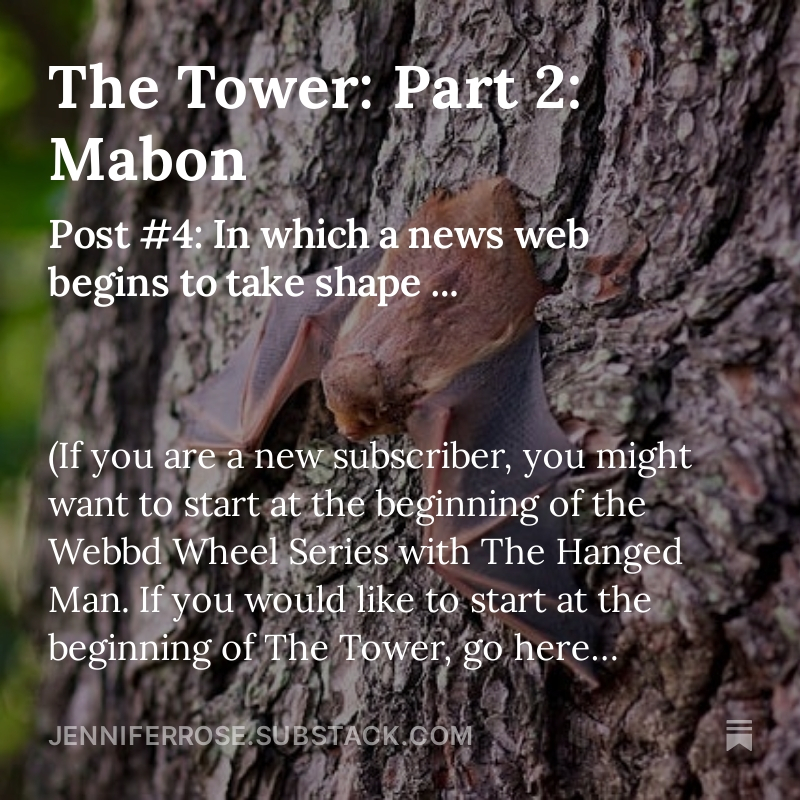
by Jenny Rose | Jan 20, 2024 | Emotional Intelligence, Feelings
(Due to a technical glitch, most of you were not notified when I last posted. You can follow this link to read the post if you missed it. I think the problem is fixed now!)
As so often happens, several threads came together to weave this post. The first was a suggestion from Seth Godin to follow our wandering mind, as that’s where our heart might be.
On first read, I smiled and thought “of course,” because following my imagination is one of my greatest pleasures.
As I considered it over a period of days, however, noting where my mind wanders, I discovered something.

Photo by John Salvino on Unsplash
I happily follow my wandering mind as long as I feel undisturbed about where it goes. The minute I start to get uncomfortable, however, I shackle it. Brutally. This might be with distraction, compulsive productivity, or starting to speed. A lot of people eat, overexercise, or get trapped in substance abuse. Let us count the ways!
I have rules about where my mind is allowed to go. I enforce my rules without mercy, in collaboration with draconian internal voices. My rigidity is not so much about my thoughts wandering as it is the feelings I have about my thoughts. This is emotional intelligence 101, and I’ve written about it before.
Thoughts and feelings are not the same thing.
In essence, then, I’m putting a lid on my feelings. Again. Still.
Sigh.
It doesn’t work. It never works, and I know this, but I do it anyway.
I do it for the same reason we all attempt to avoid painful feelings. They’re painful! Avoidance is easier than allowing ourselves to feel them, find healthy ways to express them, and let them go.
How many thoughts do we have in a day? I suspect most of us chew on the same preoccupations day after day, whether our thoughts engender feelings of rage, grief, fear, or shame, or a combination du jour. Uncomfortable territory. Also highly addictive territory. I’m chagrined to admit my own attraction to struggle. It’s so easy! Which is ridiculous, because it makes everything much, much harder than it needs to be, physically, emotionally, and generally.
Maybe what I mean is it’s so familiar!
As humans, we have an irresistible compulsion to notice, emphasize, and dwell upon the negative rather than the positive. That’s why so many people find relief in a gratitude practice, including me. Switching from a negative to positive focus requires mindfulness and mental effort, but the relief from anxiety and stress is immediate.
I should do it more often. Like ten times a day.
Understand, I’m not suggesting we avoid our feelings. I’m suggesting we take control of our thoughts, especially the negative kind. Feelings rise and fall inescapably. They’re biochemical messages from our physical bodies. We were made to have feelings. What we do with them, of course, is well within our control. Thoughts, however, are ours to steer.
Feelings, though arising naturally, are contagious and easily manipulated. That’s why advertising and social pressure work so well. Our feelings can be deliberately manufactured to serve those who would control our money, our votes, and our humanity.
On the other hand, this means we can to some degree manipulate our own feelings with our thoughts.
I came across an article by writer and speaker Rob Henderson, who I follow on Substack. He wrote a piece listing lessons he’s learned during a challenging life, beginning in the foster care system. One of the lessons is “you are what you do.” Not what you feel, but what you do.
I thought immediately of my writing community on Substack, where each of us struggles with what it means to be a writer. I don’t speak for anyone else, but I’ve called myself a writer ever since I began writing. Writers write. That’s what I do.
I like to keep things simple (even though I often don’t, which is a perfect example of what I say versus what I do!)

Photo by Alex Iby on Unsplash
We are what we do. I agree. We are not entirely defined by what we think and feel. I’ve known that ever since I went through emotional intelligence training. We’re also not defined by who we say we are, or who others say we are. We are not our highly polished and desperately maintained identity. Our true thoughts and feelings, the private stuff no one else can see or hear, steer our choices and actions, and those are what truly reveal our most authentic selves.
It follows if we want to change, we must do things differently. As many others have discovered long before me, true change comes from the inside out. If we manage our thoughts and feelings in healthy ways, our actions change. That’s why short-term strategies like diets often fail. A temporary diet does not address our broken relationship with food, a much harder proposition to tackle.
We seem to be on a giant rack, ever widening, between who we think we should be or must be and who we really are. The struggle and tension threaten to tear us apart, yet we cling to our rack, desperately holding ourselves together, too afraid to relax into who we really are and make peace with our true selves.
In a constant state of tension, we don’t let our minds wander. We can’t afford to. We don’t have access to the peace and quiet or even boredom a wandering mind requires. Our technology has erased the fertile ground of boredom, particularly for our children. We feed our hearts a diet of distraction, manufactured drama, busyness and productivity; a hunger for more, bigger, better, newer things, and expect it to be satisfied. We ignore or numb our feelings, or turn them into destruction of ourselves and others.
I often think of this Chinese proverb:
Tension is who you think you should be. Relaxation is who you are.
Toxic positivity is not an effective coping mechanism. Nor is a state of deep depression and withdrawal, as in addiction. I want to find a path between the two.
Perhaps my wandering mind knows the path and will point the way if I allow it to. Perhaps our minds know exactly where our hearts are but we’re too afraid to know.
Questions:
- When your mind wanders, where does it go?
- How do you feel about where your mind wanders?
- How do you think an inability to focus (distractibility) might in some cases be connected to a refusal to follow the guidance of mind and heart?
Leave a comment below!
To read my fiction, serially published free every week, go here: 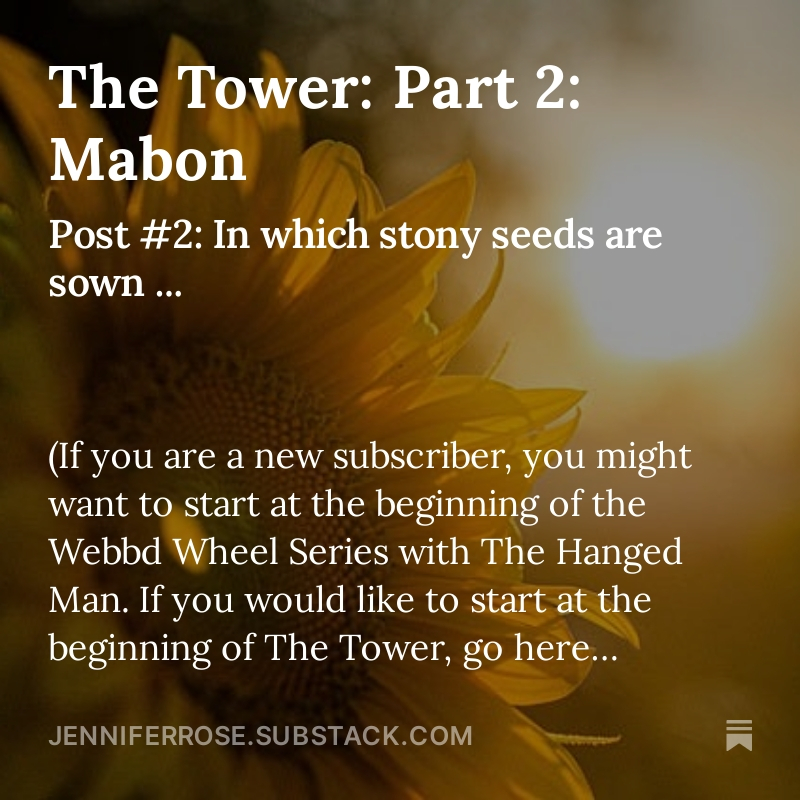
by Jenny Rose | Jan 6, 2024 | Aging, Connection & Community, Emotional Intelligence
I’ve been resting in this pause between solstice and the new year. Although I made a conscious choice to set aside everything I could, it was uncomfortable to let this blog lie fallow. On the other hand, I have not been inspired to do much more than manage day-to-day life.
I’m grateful to have moved into new holiday routines after decades of feeling imprisoned by obligation and duty to my fractured family and making Christmas meaningful and fun for my children. Gone are the days of huge, exhausting meals, tight schedules, trying desperately to please everyone at my own expense, spending much of the holidays in the car traveling between homes, and tired, overstimulated children. Not to mention tired, overstimulated me.
Now I focus on Yule, on the deep, introspective peace of winter and long nights, withdrawing into my cozy home. I engage in rituals I love: candles, simple decorating, making a double batch of Spritz cookies with my cookie press to share, and welcoming the return of the light.
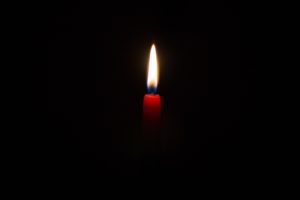
Photo by David Monje on Unsplash
This year we had a tropical storm the week before Christmas with high winds and torrential rains that flooded our town and, indeed, the whole state. We were without power for 48 hours. The lack of electric light (or electric anything else) fit in well with Yule, though we got very cold. We were also trapped; every bridge in the area was closed and the Kennebec River, which winds through our town, rose 30 feet, which is 15 feet above flood stage. Between flooding and downed trees, we were unable to leave our immediate neighborhood. Most businesses closed. The ones that stayed open (with generators) quickly ran out of everything. Our neighbors loaned us a butane camp stove so I could heat water for hot drinks.
As soon as the power was restored I ordered a propane camp stove.
Life rolls along, whether I’m posting or not.
This morning, as I lay in bed waking, I heard snow plows in our neighborhood. We’ve had more rain here, and clearly sometime during the night it had changed to snow. As I moved around the kitchen, watching the sky lighten and the snow fall, cooking breakfast, sipping my first cup of tea, enjoying glowing candles, my thoughts drifted.
Impossible to avoid end-of-year lists and reviews and new year resolutions, hopes and fears this time of year. I generally am uninterested. I’m content to let the old year diminish and recede, particularly this one, which was especially difficult personally. I don’t enjoy new year resolutions, mine or anyone else’s. None of us know what the new year will bring and many of us look ahead with some trepidation and anxiety; I don’t need to exacerbate mine by making or consuming predictions. What will come will come and we’ll have to cope with it.
I will be 60 this month. Impossible. Incredible. For the first time in my life, I’m daunted by a birthday. Generally, I hardly notice them. I’m annoyed by my discomfort this year. I’m determined not to focus on it, but I keep seeing it out of the corner of my eye.
I asked myself a question as I moved around the kitchen this morning. If I could have anything for my birthday, if I could make one intention for the year ahead, what would it be?
It’s easier to think about what we don’t want, isn’t it? I reviewed my current challenges and anxieties, watching the pewter sky and the snow becoming less rain and more flakes as the temperature dropped. I flipped the bacon, gave the cats another half a can of food so they would get out from under my feet. The pipes in the radiators creaked and popped as the furnace turned on.
The word ‘simplicity’ came into my mind. I turned it over. I thought about what brings me joy. I thought about candles, reading a good book, the warmth and weight of a cat in my lap. I thought about a cup of hot tea. I thought about music, the rhythm of swimming, being with people I love and trust. Sitting in my comfortable chair with my weighted blanket, just breathing. Peace. Stillness. Light and shadow. Long nights. My warm bed. Hot showers. Solitude. Privacy. I thought about my current laptop background. A perfect illustration of simplicity:
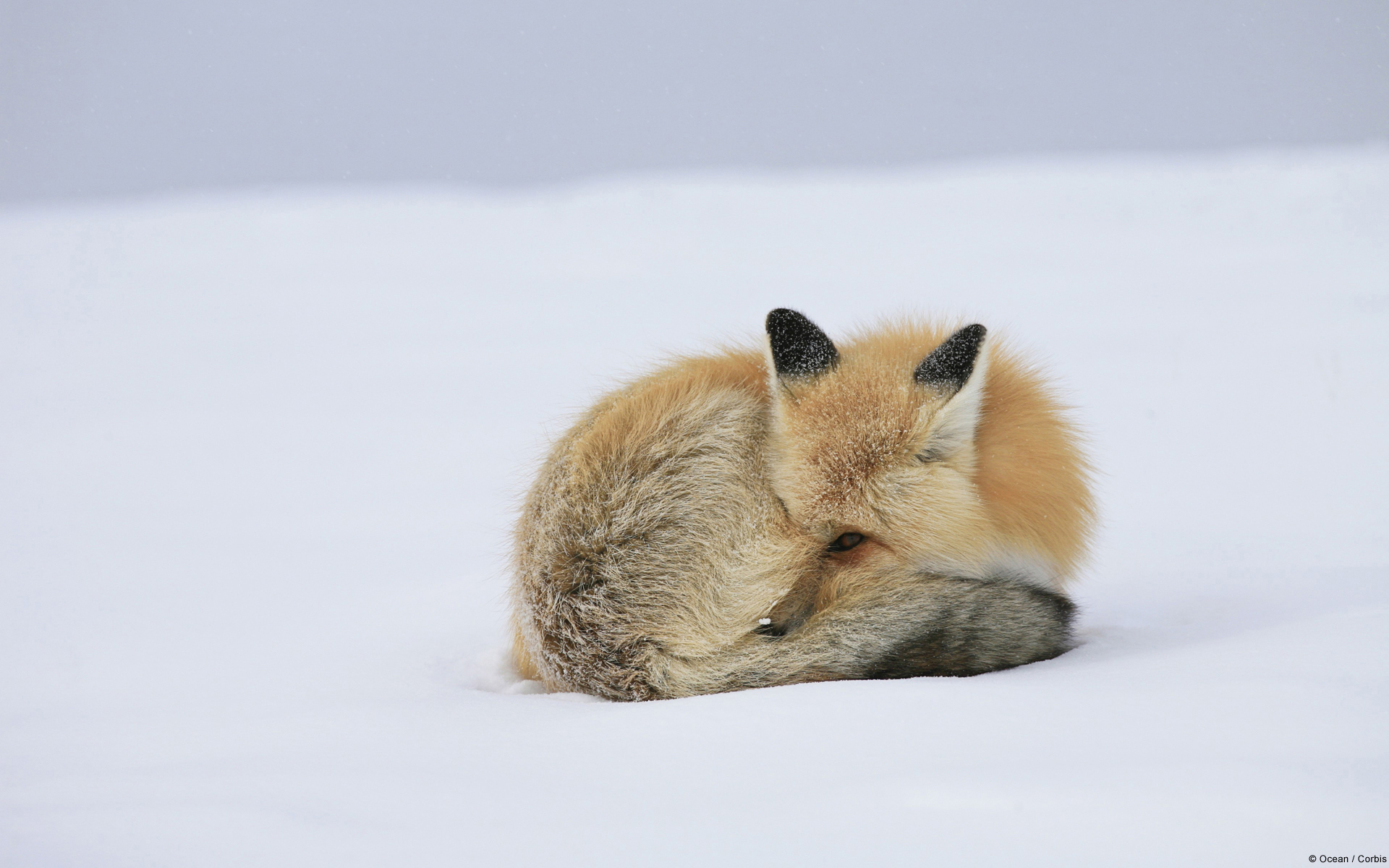
I thought about what I don’t want. The endless complications of being nice, pleasing others, fawning to stave off violence and pain. Clutter. Bright lights, noise, demands. Busyness. Obligation. Duty. Feeling hounded, imprisoned, criticized, judged by myself and others. Too much talk. Racing the clock.
I thought about boundaries. Inconsistent boundaries, badly maintained, easily breached; and strong, smooth, tough boundaries, well-maintained and consistent. Unapologetic.
I thought about the simplicity of ‘No’ and the complications of ‘No’ followed by five minutes of cringing apology and justification, or the inability to say ‘No’ at all.
‘Simplicity’, I decided, named my longing.
When I consider the first 60 years of my life I mostly see the unending labor and anguish of caring for others, the years of trying and trying, as only a woman who loves can understand, to love them all. To please them. To make them happy and healthy. It was complicated. Noisy. Chaotic. Bloody. Painful. Extremely expensive in terms of my own health and happiness.
And frequently thankless. Rarely reciprocated.
That’s what I thought I was for, to live that way. I was taught that was what I was for.
In the last few months I came across a little mantra which has become something like a prayer permanently nestled in my consciousness:
I am enough.
I choose my life.
I trust myself.
Sixty is a nice, round number. How would it be if I chose to begin again, now, with just myself; my own self-care, which is simple and easy? What if I chose to embrace the discomfort and power of maintaining strong, consistent boundaries and let people react to them however they need to, making their feelings none of my business? What if I stopped apologizing for what I need because it’s not what they need or understand or want?
What if I made up my mind to choose the simplest thing, the most direct, honest answer, the clearest communication in any given situation? What if I stood up for myself the way I stand up so readily for others?
Maybe 60 years of responsibility for everyone around me is enough and I could choose to spend the next 60 years (!) being responsible only for myself.
What a relief!
I don’t tell myself living more simply will be easy. It won’t. Boundaries, (I’m never allowed to forget) are invariably heavily challenged and battered by those who have the most to gain by us having none. Maintaining boundaries means conflict, a thing I dread and have always avoided as much as possible. It means emotional manipulation, the most painful (and successful) weapon those close to me can wield against me. It means Failing To Please. It means controlling my natural empathy, focusing it inward rather than outward, being more present with my own internal state rather than that of others.
Simplicity. What a lovely intention.

Photo by Das Sasha on Unsplash
Here’s a deep winter wish for you all:
May You Grow Still Enough
May you grow still enough to hear the small noises earth makes in preparing for the long sleep of winter, so that you yourself may grow calm and grounded deep within.
May you grow still enough to hear the trickling of water seeping into the ground, so that your soul may be softened and healed, and guided in its flow.
May you grow still enough to hear the splintering of starlight in the winter sky and the roar at earth’s fiery core.
May you grow still enough to hear the stir of a single snowflake in the air, so that your inner silence may turn into hushed expectation.
by Brother David Steindl-Rast
Questions:
- How did you spend your holidays? Did you spend them the way you wanted to or the way you had to?
- How do you feel about new year’s resolutions?
- What single word names your deepest longing?
- In your view, how do self-care and selfishness differ?
Leave a comment below!
To read my fiction, serially published free every week, go here: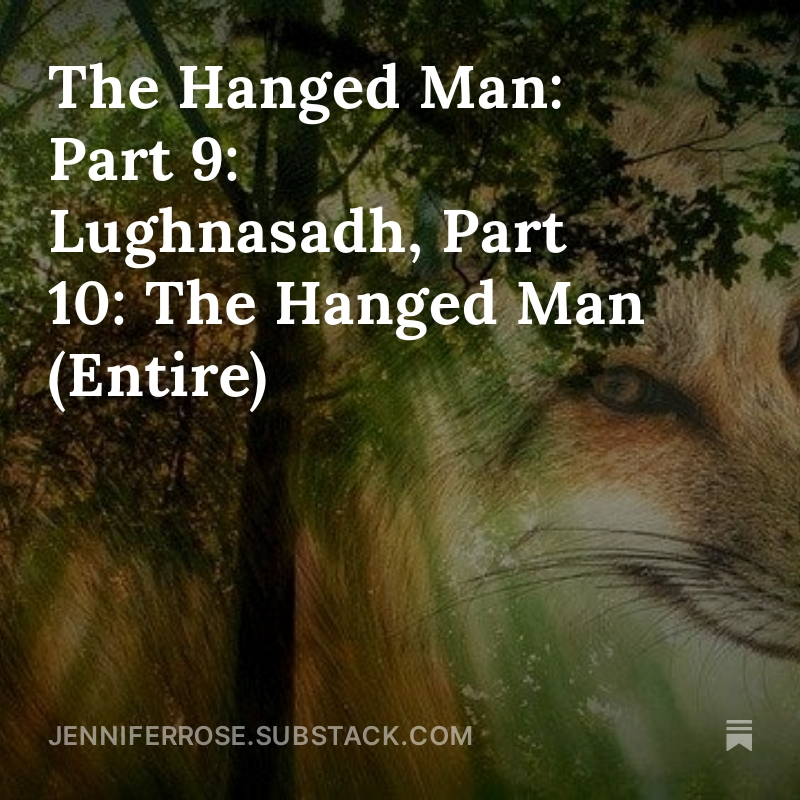
by Jenny Rose | Nov 4, 2023 | Emotional Intelligence, Feelings, Love
Elizabeth Gilbert is on Substack, and I follow her. Best known for her breakout novel, Eat, Pray, Love, she’s a journalist, speaker, and writer. Her Substack is called Letters From Love and more than ten thousand subscribe.
Letters From Love is the most uncomfortable Substack I read. I write that statement with wry humor. The premise is writing love letters to oneself.

Photo by Angelina Litvin on Unsplash
When I first came across it, I was equally horrified and attracted. I poked around, reading here and there, and realized quickly Elizabeth and I share certain experiences. I already knew this, because years ago I came across her brilliant piece on tribal shaming, which I immediately blogged about.
It takes one to know one.
When I found Gilbert on Substack I subscribed, so her newsletter comes regularly into my Inbox. Sometimes I ignore it for days, but sooner or later I open it and read. She posts love letters she’s written to herself. Publicly! She also has a podcast, does interviews, and posts love letters others have written to themselves.
(Cringe.)
I can’t help but notice my violent reactions. Me being me, I don’t choose to turn away and read something more comfortable. I have questions. What is my deal? I’ve been working for more than ten years on self-care and self-love, on reparenting myself and healing old trauma. Why am I not delighted with the idea of a practice of writing love letters to myself?
(Shudder.)
My first reaction is to crawl through the screen and beg her not to expose herself like this. Beg them all not to expose themselves. Don’t they understand how dangerous it is? Haven’t they learned a display of this kind of vulnerability will attract destroyers with stones and blades and (worst of all), terrible, terrible words of contempt? Oh, and don’t forget lethal indifference.
(If you’re not paying attention, I’ve now told you everything you need to know about the way I grew up.)
Except clearly the sky is not falling. More than ten thousand people are reading Gilbert’s love letters, and she goes on writing and publishing. The discussions within her community are neither indifferent nor contemptuous. On the contrary, they’re supportive and tender.
Which leads me to conclude my red alert reaction is about me rather than the practice of writing love letters to oneself.
Hm.
How can they do this? I wondered.
Could I do this?
No, no, no, not to publish! I reassured myself hastily. Just for me. Like my journal. My eyes only. A delete key. No one ever needs to know.
But there was a problem. Elizabeth writes to herself with endearments. Creative, funny, quirky endearments, like “my glinting little piece of foil from a gum wrapper.”
OK, now that’s fun! Words are so much fun!
What kind of endearments would I address myself with?
I’ve had pet names for my kids and my animals. No one else, really. Certainly not myself. My tone with myself has mostly been the harsh, hectoring, contemptuous, cold voice I internalized from the adults around me as a child.
More discomfort.
But, words … If I had a child just like the child I was, what endearments would make her giggle and feel loved and seen?
So I started a list of whimsical endearments. A very private list. So don’t ask! I was a little ashamed of myself, but no one else need ever know …
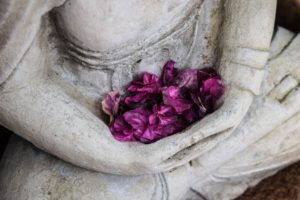
Photo by Chris Ensey on Unsplash
The list was fun, because it was a creative exercise. I can do creative exercise. It occurred to me part of my resistance to love letters (either giving or receiving) has to do with my disbelief in words. (Ironic.) Words can say anything. People say anything. The proof is in action. The older I get, the less interested I am in words, and the less I believe them. Demonstrate. Act. Show me, don’t tell me. As I’ve worked to heal I’ve developed routines for self-care, for eating well, for exercise, for sleep, for writing. I’ve been successful, and take much better care of myself than I ever have before. I take better care of myself than anyone ever has before, in fact.
But I haven’t written love letters to myself. I would have told you I could do so, if I wanted to. If I thought they’d have value. If I thought I’d believe them …
I grew up with emotional withholding. I’ve believed I’ve broken that pattern with my own children and my loved ones, including my animals. But now I wonder. Isn’t demonstration of love with no words a little sterile? I know the mixed message of loving words and abusive actions is devastating. Is active demonstration of love without words also confusing? Am I withholding from myself? Obligation, responsibility, duty – all these I’m very good at. But those are stony words. Where is the tenderness, the humor, the generosity? How about compassion? I feel those for others. I’ve spoken them from the heart; written love poems, love letters, notes, and cards – for others. Could I learn to feel and express them for myself?
Then I got sick with COVID, the events of the last couple of years (traumatic, protracted move; my mother’s decline and death) caught up with me, and I felt miserable. At once, I began putting pressure on myself to get back to writing, get back to work, get back to exercise, take out the trash, do the shopping, and generally pull myself together, because, after all, the world is full of bleeding, suffering people and I have a good life, a privileged life, and don’t deserve to feel sorry for myself and be lazy.
Not a love letter, in other words.
In the middle of the week during which I sat on the couch, alternately shivering and burning and blowing my nose, I wrote myself a love letter.
Well, maybe a let’s-see-if-I-can-tolerate-you letter.
It was an extremely strange experience. In fact, it made me cry, which didn’t help my congestion. Or my cough. At the time I had no sense of taste or smell, and I reflected that it was like that. When I tried to turn toward myself with love, tenderness, affection, whatever you want to call it, there was nothing. Just … nothing. A thick, numb shell between me and myself.
It made me so sad. Immediately upon the heels of that, I was ashamed. Because, you know, self-pity.
Almost as bad as self-love.
Wait now, what?
It’s bad to love yourself … if you don’t deserve it.
And, readers, I thought I’d left that belief far behind in the dust.
Then I began to feel angry, and I told myself I was going to start practicing writing love letters to myself. Because I deserved and deserve love as much as anyone else. I’m not important enough to be the most loathsome person in the world.
Questions:
- How does the idea of this practice make you feel? Can you write a love letter to yourself? With endearments and everything?
- If you could write a love letter to yourself, how would you feel about making it public?
- What do you most need to hear from someone who loves you? Would it have power if you wrote it to yourself?
Leave a comment below!
To read my fiction, serially published free every week, go here: 